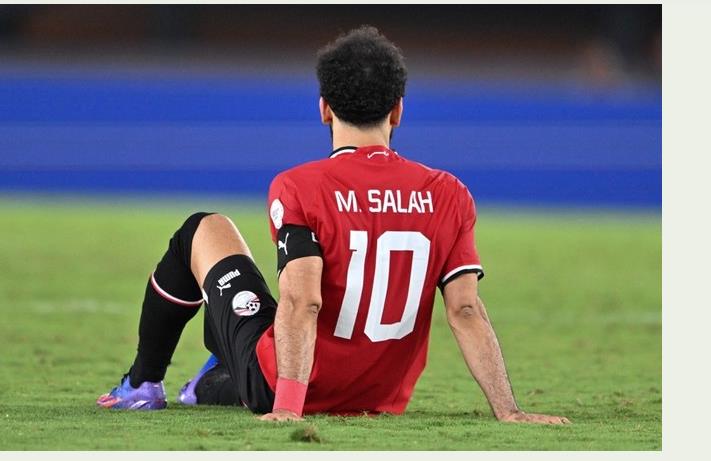
While club and player concerns have in many cases been shown to be well-founded, the tournament has increasingly thrived as we look ahead to the semifinals
The Africa Cup of Nations quarterfinals have come and gone. A Mohamed Salah-inspired Egypt will now face hosts Cameroon while Senegal will take on Burkina Faso in the other semifinal.
Only four matches remain, including the final on Feb. 6. And while the tournament has recovered from a slow start to provide more thrills in the knockout stages, it will also have lasting consequences for the number of injuries and coronavirus disease (COVID-19) cases that have been recorded.
They are particularly concerning in a tight calendar packed with local and international competitions, starting with the delayed 2021 FIFA Club World Cup and the conclusion of the World Cup qualifiers, not to mention the domestic leagues around the globe and Qatar 2022 itself.
Egypt, who after AFCON will face Senegal in the World Cup decider next month, have particularly suffered in recent matches with two goalkeepers, Mohamed Elshenawy and Mohamed Abou Gabal, having to be replaced while defensive rock Ahmed Hegazi will now miss the rest of the tournament.
Meanwhile, Al-Ahly’s Akram Tawfik was injured in Egypt’s opening match of the tournament against Nigeria, and X-rays showed he had damaged his cruciate ligament, forcing him out of football for at least six months. With his season over, Tawfik now misses his club’s participation at the Club World Cup in Abu Dhabi — where his club will take on Mexico’s Monterrey on Feb. 5 — as well as having the uphill task of making Egypt’s squad should they qualify to the World Cup in Qatar at the end of the year.
European and international clubs with star players at AFCON will dread injuries, and Liverpool manager Jurgen Klopp must have had his heart in his mouth when Senegal’s Sadio Mané collided with Cape Verde goalkeeper Vozinha in the round of 16 clash. Mané remarkably stayed on the pitch to score the first in a 2-0 but was unable to continue minutes later and was taken to the hospital immediately. Thankfully, he recovered fully to play in the 3-1 quarterfinal win over Equatorial Guinea and should lead his country in the semifinal against Burkina Faso on Wednesday night.
However, Mané’s incident led Luke Griggs, deputy chief executive of the Headway association for brain injuries, to criticize the protocol of the tournament’s organizing committee for not allowing teams to make an emergency switch for players with a concussion and concluded that the Senegalese staff had to replace Mané immediately after his injury. The incident cast a light on the safety regulations of the Confederation of African Football and FIFA since Mané was ready to play again days later.
Risk of injury on international duty is something clubs and players accept, the former reluctantly and the latter perhaps with more stoicism. However, concerns for their club careers — essentially their day jobs — and the subsequent impact on the player’s market value, quite rightly cannot be ignored. This has led to calls for referees to punish and reduce rough play and thus injuries at AFCON.
A tournament like AFCON has traditionally exhibited high levels of intensity, but this year teams have had the extra factor of the ongoing pandemic to deal with.
Hundreds of players across the world have tested positive for COVID-19 in recent months and Tunisia, for example, had at one stage during the tournament 10 players unavailable due to the virus.
The long-term effects are yet to be clearly understood, but many players have struggled following their recovery, including Lionel Messi, while Kevin De Bruyne has gone on record as saying he still has not recovered 100 percent.
Studies in Germany, England and Italy have revealed that players who returned to action after suffering from COVID-19 were producing significantly lower performances, in particular those who are over 30 years old. Focus, accuracy and endurance levels were all affected, which in turn have a knock-on effect on the results of clubs after the recovery of their players.
In some cases, as at AFCON, recovery from COVID-19 cases was not enough to return to action.
The Gabonese duo of Pierre-Emerick Aubameyang, newly of Barcelona, and Nice’s Mario Lemina had to depart their country’s camp before a ball had been kicked due to COVID-19-related concerns. Aubameyang, 32, returned to his then-club Arsenal for tests after he was diagnosed with a heart irregularity following his infection with COVID-19.
In 2022, that is a risk that football has to live with.
Considering the unavoidable risk of infection and injury in the middle of the domestic league season, going ahead with AFCON has to a large extent been vindicated. The clubs will have their complaints, but by and large, we have been treated to an increasingly exciting competition.
And hopefully a beautiful end is yet to come.












